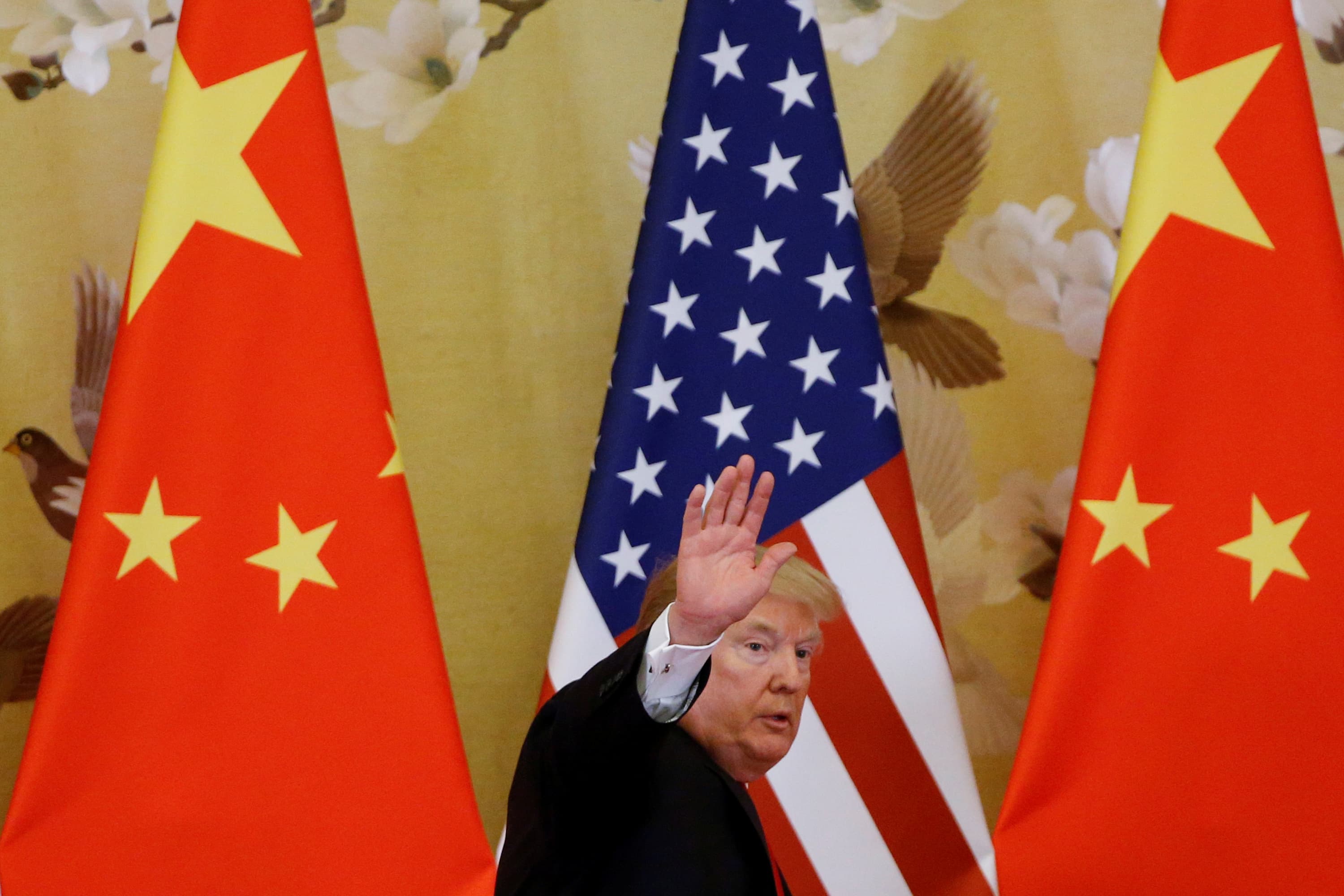President Donald Trump should go forward with the next round of tariffs set for Dec. 15, CNBC's Jim Cramer said Friday.
That's because the November jobs report issued Friday shows the U.S. economy is stronger than some may have believed, the "Mad Money" host said.
"If we're experiencing this kind of growth without inflation, that means President Trump has a ton of flexibility when it comes to the trade negotiations with China," Cramer said.
"That's why tonight I am saying I think ... he should just walk away from the table, proceed with the planned tariff hikes in a week and a half, and wait for the Chinese government to become less intransigent or until the elections in 2020 or both," he said.
The Trump administration is in a position to do so, Cramer argued, because the long-running U.S.-China trade war is hurting the Chinese economy more than it's hurting the American economy.
The Labor Department reported Friday that the U.S. economy added 266,000 jobs last month, significantly eclipsing estimates of 187,000 from economists polled by Dow Jones. The unemployment rate dropped back to 3.5%, equaling a mark earlier this year that was, at the time, the lowest since 1969.
The trade war is either not hurting the U.S. or, at the least, it's not hurting the economy bad enough to dent these "fabulous jobs numbers," Cramer said.
"We might as well take our time and get the best deal possible that you can get," he said, adding "whether you love Trump or you hate Trump, with these job numbers, time is on his side."
The tariffs set for Dec. 15 cover $156 billion in consumer goods produced in China, such as toys, phones, laptops and clothes.
President Donald Trump waves during joint statements with China's President Xi Jinping at the Great Hall of the People in Beijing, China, November 9, 2017.
Thomas Peter | Reuters
Speculation about whether Trump would institute them has intensified recently as the deadline nears without either side having officially agreed to a phase-one trade deal. The U.S. and China struck a tentative partial agreement in October, but disagreements about the specifics have prevented anything from being signed.
Trump, in response, did forgo a tariff increase that was scheduled for mid-October. But as for the Dec. 15 duties, Treasury Secretary Steven Mnuchin told CNBC then that he had "every expectation if there's not a deal those tariffs would go in place, but I expect we'll have a deal."
Striking a deal has been difficult because the Chinese government moves the goalposts any time an agreement gets close, Cramer said.
But as the Chinese economy worsens, Cramer said he thinks Beijing will be "forced to make more and more concessions" on issues beyond agricultural purchases, such as intellectual property and fentanyl exports.
"Only when China's ready to negotiate on those points can the talks begin in earnest," Cramer said.
"It costs the United States very little to wait, it costs China a lot," he added. "If the Chinese government wants to drag this out, that, my friends, is on them."
